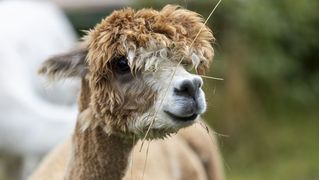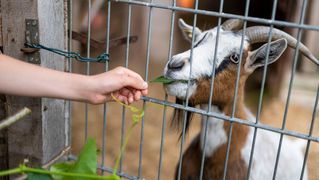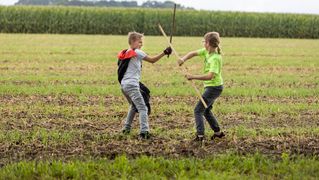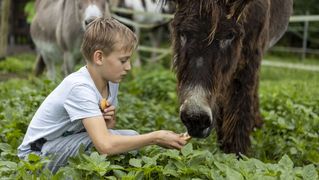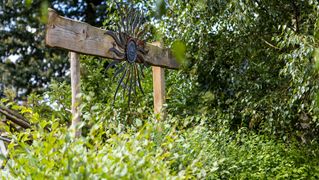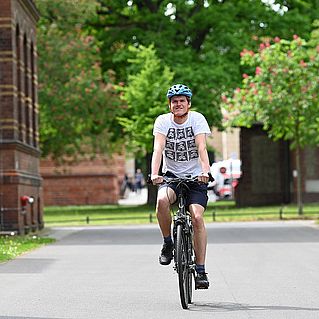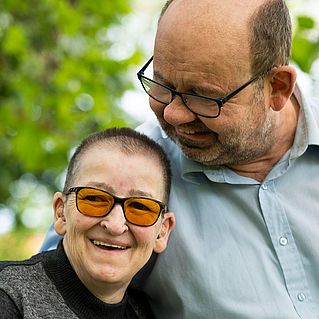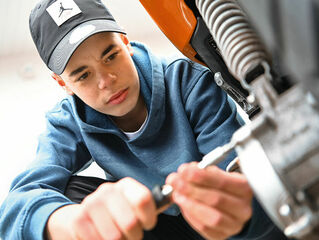The wind smells of freshly mown cornfields. Mighty trees stretch up into the sky. Everything grows so green that the small courtyard is barely visible from the road. Wild ivy entwines the house. Anyone who opens the garden door to the huge property is greeted by Otto. The tiny dog barks like a big one. His mate is a Dalmatian and wags his tail calmly. And that is by no means all that the group home has to offer. There is clucking, whining, scratching and neighing all around the farm - a facility run by Bethel's youth welfare organisation in Lower Saxony with an unmistakably animal-based educational approach.
Kai lives here together with three other children and young people. Kai is eleven years old and says: "Everything is just fine. And the animals are great." Kai was not even three years old when he was admitted to the Bethel residential group. "He needed a lot of attention and security. He had to be encouraged to learn to walk and speak better. And it was a long road before Kai was able to sleep through the night with peace of mind," says Andrea Hohmann.

